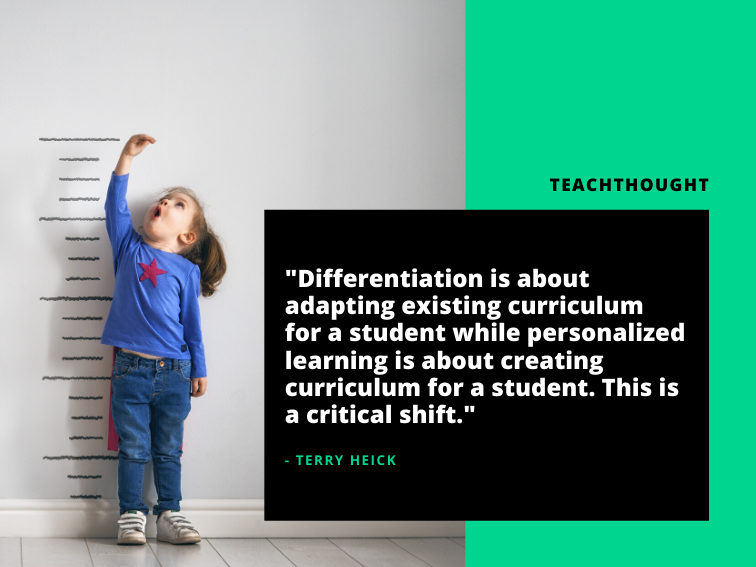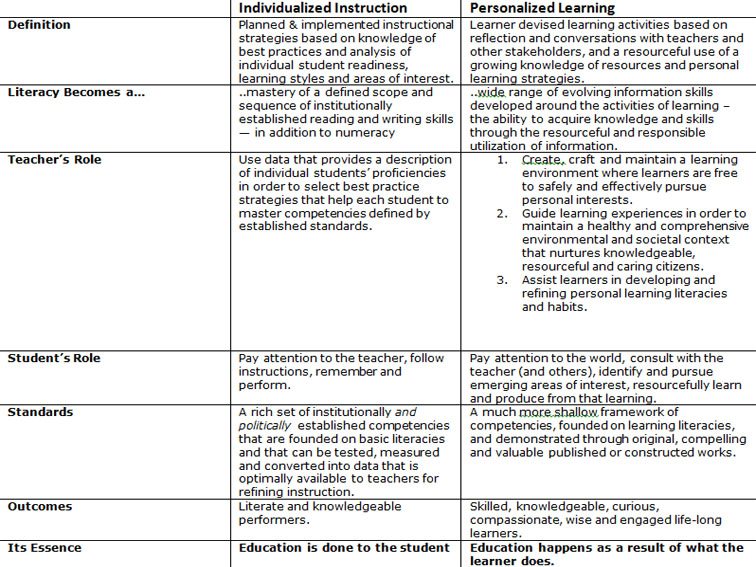
Personalized Learning: A Definition For Teachers
by TeachThought Staff
What is the definition of personalized learning?
From our perspective, the definition of personalized learning is ‘a learning experience designed for each student with their specific needs in mind.’
In personalized learning, content, pacing, sequence, technology, learning models, learning spaces, audience and purpose, and any other ‘learning component’ are adjustable according the knowledge demands, curiosity, genius, and learning purpose of each student. The end result is, ideally, a learner who is literate in both the content and process of learning.
This stands in contrast to differentiation, which adjusts the same content for different students based on more limited aspects (i.e., readiness, interest, and learning profiles).
Put another way, individualized learning is about adapting a curriculum for a student while personalized learning is about creating a curriculum for a student. This is a critical shift. We’ve covered the difference between differentiation and personalized learning before, and David Warlick takes a similar approach in the chart shown below from his blog.
The contrast he identifies is similar to those voiced before (one is focused on teachers and performance, one on learners and knowledge itself), but interestingly he points out the the very different role of academic standards. Under the Individualized Instruction approach, the standards are “a rich set of institutionally and politically established competencies…that can be tested, measured, and converted into data…for refining instruction,” while Personalized Learning pursues a more “shallow framework of competencies” and is instead focused on the process of learning itself, which definitely makes sense in an information-rich world.
(Warlick also includes an interesting snapshot of the Google search trends for the phrases that somewhat reflect public interest and awareness for the respective terms.)
None of this means, of course, that standards-based learning can’t possibly be personalized, but the shift here in the reasons and pathways for learning is no small matter. What’s your take? What are the pros and cons for each, and what takeaways did you find here?
Image attribution flickr user flickeringbrad; The Definition Of Personalized Learning

